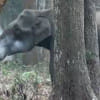Taking the hard rap ahead of Thailand’s national election
Just months away from the Thai election, a music video gets the generals, artists and scholars in a twist.
The hit anti-dictatorship rap song riling the junta-led government, “Prathet Ku Me” (“My Country’s Got…”), has also roused debate and hinted at change in both the political and arts spheres in Thailand, say multidisciplinary scholars.
The 10-member group Rap Against Dictatorship (RAD) used social media as an artistic weapon, its music video-as-political message garnering more than 25 million views on YouTube to date.
The government tried to ban the hit tune, warning that its message and video footage replicating the 1976 massacre at Thammasat University violated the Computer Crime Act’s strictures against information inconsistent with the truth and also threatened national security.
The effort failed. RAD has cheated the censors by using blockchain technology to prevent the government from deleting the video or barring access to it.
But that hasn’t stopped debate from reaching both extremities of pro and con among people from all walks of life, from scholars and politicians to teenagers and monks.
Anthropologist Sorayuth Aiemueyut, who lectures on visual culture at Chiang Mai University, said people incensed by the limits placed on freedom of expression by the government via the use of laws such as Article 44 of the Constitution have found the song liberating.
“The impact of this phenomenon reflects the fact that many Thais are under pressure for calling for democracy under a dictatorial government,” Sorayuth told The Nation Weekend. “The political-art movement deploying new technology is also animating the current political situation, with thoughts being shared in both the virtual and real worlds, something called ‘digital immateriality’.
“In the social media community, technology is the key tool for social change,” added Sorayuth, a PhD candidate in visual and media anthropology at the Free University of Berlin. “This rap song has raised the level of debate about the arts, politics and music, as well as technology.”
Overt political activity is just now resuming after being banned since the 2014 coup, but arts-related socio-political activism has steadily spread, both online and off. Art happenings, posters and music concerts have given voice to campaigners pressing for a return to democracy.
In some cases the authorities have reacted, in one instance arresting demonstrators outside the Bangkok Art and Culture Centre. Anti-junta artists began adopting “guerrilla” tactics to get their messages out.
The junta-led government has banned many political artworks, songs, films and stage productions. Individuals and groups targeted included Faiyen, a pro-red shirt band living in exile, and graffiti artist Headache Stencil, whose murals have depicted a black leopard and Deputy Prime Minister Prawit Wongsuwan’s luxury wristwatches.
Soldiers stormed Bangkok’s Ver Gallery to shut down an exhibition called “Whitewash”, featuring the politically charged conceptual photography of Harit Srikhao. Online political cartoonist Kai Maew had to set up a fresh link (Kai Maew X on Facebook) after being banned for a while. Also drawing junta was Anocha Suwichakornpong’s internationally acclaimed movie “By the Time It Gets Dark”, which similarly took inspiration from the 1976 Thammasat tragedy.
Rising from the underground
These were hardly the first times Thai artists were moved by bloody political events. Photography artist Manit Stowanichapoom and conceptual artist Nutdanai Jitbunjong have used historical image in their work too, though neither faced a ban. “RAD moved the art up from underground to protest the junta government, using both online and offline platforms,” said visual-arts lecturer Thanom Chapakdee of Srinakharinwirot University.
“However the long-time ban on political activism under the military junta forced the RAD artists to look for alternatives.” The song speaks about the hypocrisy of military dictatorship, the deep political divide, deaths on both sides of the divide and the failure of self-righteousness.
“As artists, we want to reflect the truth of the society we are living in under dictatorship,” a RAD member identified only as Hockhacker told The Nation Weekend. “Thailand seems to be caught in a loop of dictatorship. We want to voice what the majority cannot say directly. The lyrics were based on information we collected on social media, reflecting the sickness of our society.”
Thammasat law lecturer Sawatree Suksri said dictators ban political art because of the strong impact it can have on citizens. It’s easy to understand and thus makes convoluted political issues understandable, she said at a recent seminar on “Art, Power and Disobedience” held at her university.
Thanom noted that Prime Minister Prayut Chan-o-cha has often used culture as a form of “soft power” to promote nationalism in conservative ways, like dressing in traditional Siamese garb and crooning mild pop tunes. Most recently, if tardily, he’s jumped onto the new media with posts on Facebook and Twitter as he woos voters ahead of the February poll.
Meanwhile the recently founded pro-democracy Future Forward Party is tapping artists to help its election campaign. Targeting younger people, the party is hosting the “Future Fest: Art, Music, Culture” this weekend at Bangkok’s Jam Factory, with political art and an open discussion about it.
Another RAD member known as the Liberate P initially planned to attend the fest but changed his mind because he didn’t wish to be seen as supporting Future Forward either.
Copyright: The Nation/ Asia News Network

 For all latest news, follow The Daily Star's Google News channel.
For all latest news, follow The Daily Star's Google News channel. 








Comments